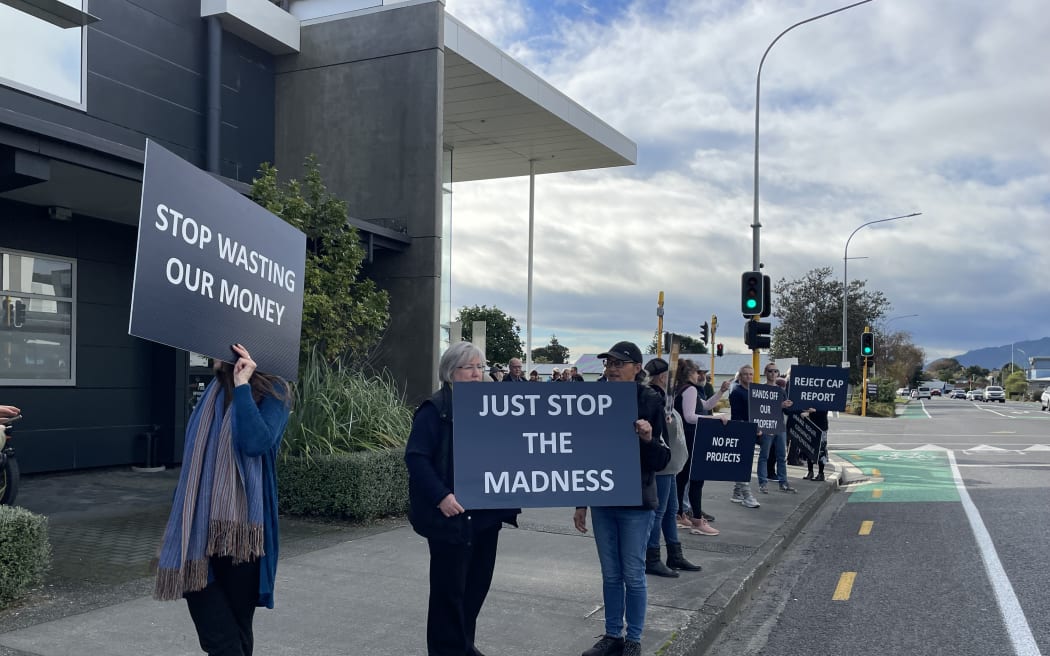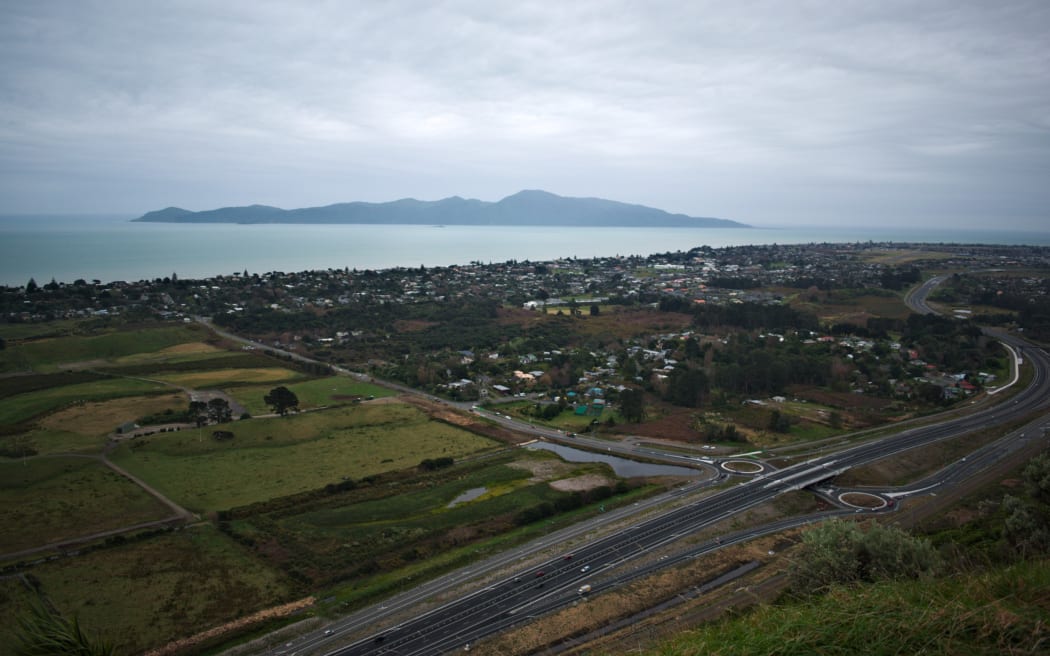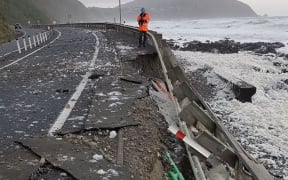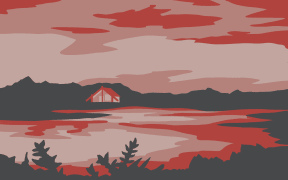
Kāpiti Coast residents protest outside a council meeting on Thursday. Photo: RNZ/Kate Green
Kāpiti Coast residents are demanding their local council throw out a report on how to protect hundreds of homes from sea level rise.
They and Kāpiti Coast District Council have been at loggerheads for more than a decade over attempts to map which areas are most at risk over the next century.
A panel of experts, led by former prime minister Jim Bolger, held more than 20 community sessions around the region to try to settle the issue.
The council first tried to put erosion warnings on Land Information Memorandums in 2012, but was taken to court twice by residents, who said the science relied on extreme estimates of sea level rise and coastal erosion which was unlikely to come to pass.
The courts sided with the council initially, but a year later, an independent panel found the science lacking, and the information was removed.
In 2021, the council picked the issue back up, announcing a project to map the region and its future hazards due to climate change.
On Thursday, protesters outside the council offices were met with honks of support from passing cars, before heading into the meeting where the report was officially received by the council.
The report itself followed more than a year's work by the panel (known as the coastal advisory panel, or CAP) and laid out a range of options for the district's future, from engineering solutions to full-on retreat, which would see people forced to leave their homes.
Front of mind for some who opposed was insurance.

A view over Raumati and Paraparaumu to Kāpiti Island. Photo: 123RF
Tanya Lees from the group Kāpiti CALM (Calm Alarming Law Madness) said people were worried insurance companies would use the report as an excuse to refuse to cover their homes.
"And if the insurance companies pull out, that means that people can't service their mortgages anymore, the banks need a property which is insured."
Many were still questioning the science behind the mapping.
"There are a lot of people, a lot of experts, who do not agree with this," she said.
"This seems to be cherry-picked information, following a certain narrative, perhaps."
The council said its sessions, held in-person and online, received just under 4000 pieces of feedback, and drew on a range of technical experts, evidence and mana whenua knowledge.
Following a meeting in Raumati, residents raised concerns about alleged aggressive and bullying tactics by Bolger, and the council sent a letter to residents saying it had spoken with him and reminded him of the need to be impartial.

Former prime minister Jim Bolger led a series of community sessions on the issue. Photo: RNZ/Rebekah Parsons-King
Waikanae Beach resident Ian Harrison, who has a background in the economics of climate change, said planning for the worst case scenario was unnecessary.
"You don't have to get the economics precisely right to know there's something very wrong with recommending managed retreat this century."
Harrison had written his own report and was engaging with council officers on his findings, as well as analysis of the council's most recent technical report.
Salima Padamsey from Coastal Ratepayers United said the panel's report should be taken as an advisory - nothing more.
"Council never vested the advisory committee with any statutory authority under the Resource Management Act.
"The committee's mandate did not encompass providing expert perspectives on policy matters."
Councillors and council staff went to great pains following public submissions to clarify that receiving the report did not mean the council was endorsing it or taking its conclusions as fact.
Officers said they planned to share it with the Insurance Council, but said they would seek clarity on whether it would be used to inform insurance prices. The council would also make clear on its own end that the findings were not to be taken as endorsed.
With the report formally received, it signalled the end of the project - but Raumati Community Board chairperson Bede Laracy said this was actually another beginning.
"We wrestled with this issue big-time in this community," he said.
"We need to do more of that, not less of that. And I think that the biggest learning for this council coming out of this process is how we need to do democracy better."
District planning manager Jason Holland told the meeting it was understandable tensions were high.
"The higher the stakes, the more intense everybody becomes," he said.
"If you think that your house, which for most people is their largest asset, is at risk or the diminishment of its value ... I understand the stakes are incredibly high."
The council will consider the report, and whether, or to what extent, it will inform district planning decisions from here on out.





